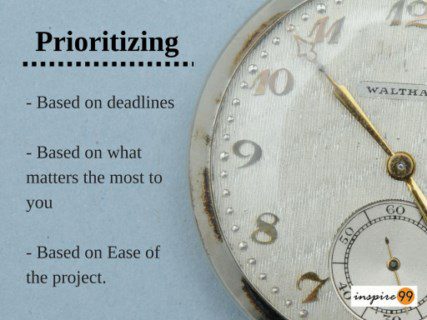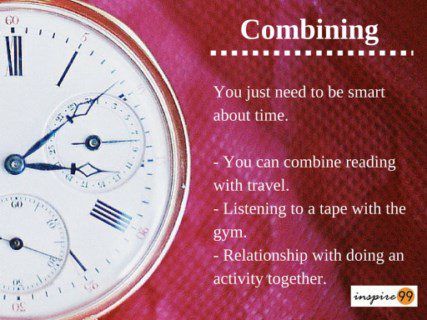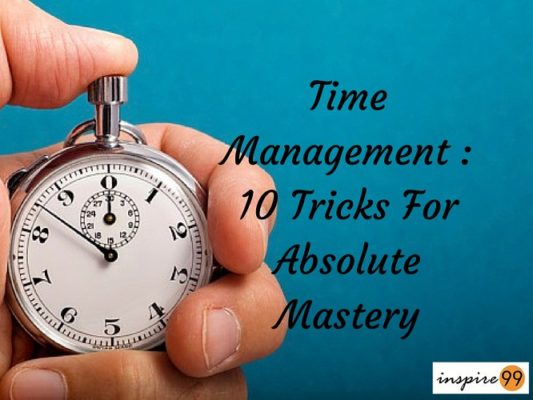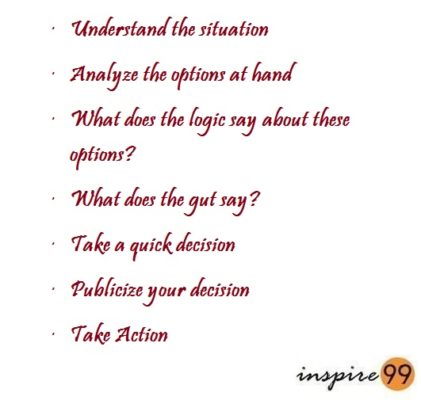Time Management PPT: What’s the best way to manage your time without compromising your priorities? Although there are several schools of thought, in this article you’ll find a time management presentation to make the most effective use of time. We talk about prioritisation, multi-tasking and some other popular techniques to make the best use of time. The bottom line of this time management ppt is – You’ve got only 24Hrs but the trick is to ensure that you have time for things that matter most.
10 points in this Time Management PPT
- Prioritization: Tasks based on importance vs urgency
- Planning: To ensure key priorities are not amiss
- Procrastination: Not postponing simple tasks to a later day
- Task breakdown: Breaking down other tasks into sub tasks and prevent procrastination
- Grouping: Similar tasks to do together and save time
- Multi tasking: to finish more than one item together
- Most Effective Time: Identifying your most productive time and reserving it for the difficult tasks
- Breaks: Planning for breaks in between
- Burnout: Managing overtime and burnout
- Big Picture: Balancing the big picture and not losing sight of it for smaller goals
Time Management PPT download free
Time is not the main thing – it is the only thing! I’d like these thoughts to reverberate in the background while speaking of time management. These thoughts of time management ppt are collated in a time management Slideshare presentation. The presentation is available for free download.
I’ve used SlideShare as the easiest mode to export this presentation either in a pdf or ppt format. Please leave your feedback on this time management Slideshare. Here’s also a gallery of these slides that might be easier to download if you prefer.
Slide gallery from time management presentation
This time management ppt on Slideshare has 10 slides talking about the different parts of time management. These slides talk about the central theme of being clever about using your time. I’ll not be suggesting you to sleep less or magically create more time. We all have limited availability of time, the best option we have is to be clever about using it for the best benefit.
Prioritise tasks for weighted time management
All tasks appear important, but sometimes on a busy day, the urgent things take priority over important ones. This is one of the most common culprits for time management. You can find details of prioritizing time using the Eisenhower Matrix to indicate the priority of these things. The trick is to ensure that your To-Do list doesn’t overtake your life to such an extent that you lose control of managing your time.
Prioritising also means that you don’t do all the work yourself. You can be clever and use the 4Ds of time management, delegate some activities or postpone some to ensure that the most important tasks are addressed first.

The best way to tackle your time is to identify various brackets your time is being utilised. This will give you an opportunity to identify the biggest areas where your time is being used. Then you can ask questions about the tasks that can be delegated or handled in a different manner.
How to prioritise activities according to this presentation on time management?
- Based on what matters the most to you: This is more of a passion project. If you have the flexibility of choosing items on your list, then certainly picking ones that speak the most to you is an angle to consider. It doesn’t necessarily mean that everyone around you will be happy about it. But you certainly will be :)
- Based on Ease of the project: This might seem like a cheat, but it certainly is not. One of the best ways to prevent procrastination is to ensure that you tick off items from your list. Although the easy ones have a certain ease to them and you can finish them off quickly at a later point in time – it is baffling how much time even the easy ones tend to tak
Plan Time for both best and worst cases
Planning is not just for the ideal time scenario, it is also for the worst case. Although it is great to be optimistic, you cannot assume things will always work according to the plan. You will need to provide for these changes or unforeseen circumstances when you plan.

Remember the 80-20 rule – the most important tasks require the highest attention. You can’t spend the highest amount of time on useless things or else you’ve lost the battle even before you start.
Key points to remember when you are planning:
- Urgent doesn’t mean important: No point in being busy and responding to everything
- Plan for free time: You can’t be a super human, plan for some lag because something always takes longer
- Make mistakes sooner: Don’t wait for perfection, start and get going.
Procrastination: Use it only sparingly
Procrastination is the thief of time! It slowly adds up the pressure and creates the illusion that you’ll have more time tomorrow than today. We all know that it is a common lie that we tell ourselves. It is easier to get rid of things off our list, particularly if they are easy ones. Instead of pushing them down the funnel, finish them off. It makes your list smaller and more manageable.

While thinking about procrastination in this time management ppt, we’ve to consider our habits. Procrastination maybe because we think something is too easy or to avoid the pain of doing something which we don’t have the capability for. Both cases of procrastination are bad for time management.
- Don’t push the easy one to last: Make your list smaller and get rid of the easy ones so that they don’t pile on the pressure.
- Make sure you finish it on importance and not on ease: Again, it is not always the best way to start working on the easiest aspects. It only gets you part way towards the overall project being managed. Instead, breaking into chunks and combining with the tougher activities tends to work in your favour.
Avoid Time Pressure by preventing procrastination
Procrastination is the thief of time. Most time management PPTs talk about procrastination since it is one of the most common traps of time loss. Common reasons for procrastination are:
- It appears too difficult at the moment. Things might ease up with time.
- The task might appear too easy and hence you can finish it quickly later.

The most important thing to remember about procrastination is that simple tasks should not be procrastinated. You should make time for creative or challenging tasks without these simple tasks forcing a deadline pressure on you. More tips on how to avoid procrastination can be found here.
Manage Time by Grouping similar tasks
The time management ppt makes sense when you can group tasks or identify how your time is used on a macro level. It starts with identification followed by a strategy on how to use this for your benefit.
Every big building was once a small blueprint. Make your huge project into several smaller ones with realistic targets to achieve. Slide 5 of this time management PPT focuses on the grouping of tasks for increased efficiency.

- Split the project into small parts: A project is quite normally a large one. It appears too big to finish off at one go. A smarter thing to do is to break it down into consumable parts. The beauty of this is – it gets you to think through the different options of making it work.
- Keep smaller targets leading to the bigger one: The biggest ones are not usually the easiest to get through in one go. Your smaller targets play a pivotal role in helping you reach the final one. It is almost like running the marathon with adequate pit stops, but each part of the journey helps you get to the final goal.
- You don’t have to do it all at once: This is the central point of dividing up a task into chunks. You don’t have to do all these tasks yourself. Depending on the type of task, you can get additional or external help to achieve smaller parts of the project.
Multi Tasking to use time efficiently
Time management and multi-tasking have different schools of thought. Although mindfulness suggests that we should be focusing on only one thing at a time! There might be some benefits to multi-task in time management.

Your concentration suffers from multitasking, but what if you’re combining two things to enhance the pleasure of working on them. For instance, going to the gym is a boring activity but the thought of being able to listen to music makes it an exciting experience. Something similar is reading while travelling, or audiobooks.
I’m sure you can come up with more solutions, but the focus needs to be on enjoying the experience rather than saving time. But make sure that when you’re multitasking – at least one of the tasks you’re working on is mundane and doesn’t demand huge concentration
Reference: https://en.wikipedia.org/wiki/Mindfulness
Use your Most Productive Time for difficult work
For some, it may be early morning and for the night owls, it works differently. But, we all have zones of performance. Instead of forcing yourself to do things in a dedicated block of time to provide lip service to time management, learn about your habits better. Identify your key performance zones and try to create that environment for yourself.

- What time of the day are you at your best?: There is a certain differentiation between smart work and hard work. Smart work is knowing when you can perform best, strategising this for activities that demand the most concentration and demarcating your time specifically for those.
- You don’t have to put just hours into a project: Hard work alone never helped anyone. If you are putting in the extra hours and stretching time, you get exhausted very soon and this rarely helps time management. If you are looking at a longer project, it is not the minor spurts of long hours which help – instead, it is the continued consistent effort that needs to be smartly organized.
- Work through your strengths, work smart: Not everything in the list of things needs to be done by you. You need to reserve your time and strength for activities that demand the highest energies. Granted that at times it feels that everything needs to be done by you, but I am sure there will be something or the other which can gain better output from someone else taking a look.
Take Essential Breaks to balance time
Breaks are not nice to have. They are important to keep your brain engaged and deliver the most efficiently. To manage time, you’ve got to find a way to balance small breaks between your focused times. If you find your confidence wavering, it is better to take a break than ploughing through.
- Switch off and switch on based on your need: Identify and listen to your body and mind. Don’t force yourself into doing things when you’re not ready
- Refresh yourself: Your breaks should energise you rather than bringing you down. If your breaks are unhealthy, find a different replaced to manage time better
- Creating the habit of breaks: Every new habit needs training. For time management to be effective, managing your breaks is a key differentiator.

Breaks don’t necessarily mean that you’re being inefficient. On the contrary, these breaks help you to focus and ensure that time is spent most effectively. Remember – efficiency is only doing things right whereas effectiveness is about doing the right things.
Don’t work overtime and cause a burnout
I agree that the companies appreciate you working overtime cos they have a deadline to match. But I am not an honest fan of working overtime.
- Promise less but deliver more: You may be optimistic, but don’t create unnecessary pressures to manage your time
- Overtime is not a great skill: Committment is great, but spending more time doesn’t make you more efficient. You just have to find ways to make better use of time
- Smart Work Vs Hard Work: This is the most common time sink. Focus on being smart – don’t do everything yourself. Instead of being a micro manager, find out how you can break time and responsibilities accordingly.

Between the two, time takes secondary precedence as opposed to efficiency, so be careful where priorities lie.
Effectively Manage time to keep focus on the big picture
We all have a bigger picture in life, the bigger question which is beyond these tiny deadlines and pay-checks and exam pressures. To answer that question we need to set our priorities straight.
Don’t sacrifice your big picture for smaller goals. Some highlights to remember your big picture are:

- You are more important than the project: Yes, deadlines are very important. If you miss this project or outcome, you can focus on another. Nothing is a life or death situation, you can always come back and make things better, learn from every experience. You have to build in a level of objectivity to your operations or else it is easy to get succumbed to pressures.
- Don’t let time play on your emotions and priorities of life: Yes, not achieving something is an awful feeling. But it definitely is not the end of this world. There can be multiple ways of achieving newer and nicer things. No one failure defines all future outcomes in life, there simply are too many chances and choices out there.
- Everything else can wait but not your life! : That probably is the ultimate reality. Projects and goals are only tiny parts of our long lives. If we don’t focus on the real priorities, we can be majoring in minor things which don’t give us an awful lot in return. Don’t lose the big picture in the minor details which can always be improved.
These were our top 10 pointers for time management and making it work for you. We would love to hear your thoughts


Pingback: Top 5 Time Management Strategies to be smart about your time - Inspire99
Pingback: Better Three Hours Too Soon Than a Minute Late - Shakespeare - Inspire99
Pingback: Time Management: 10 Tricks For Absolute Time Mastery - Inspire99
Pingback: How to use time effectively - 5 Key Tips - Inspire99
Pingback: To live in the present moment is a miracle - Inspire99
Pingback: Efficiency is doing things right Vs Effectiveness! - Inspire99
Pingback: 5 Key Points on What startup accelerators really do - Inspire99
Pingback: Time Management is Life Management - Brief Essay - Inspire99
Pingback: Don't find fault find a remedy - Henry Ford - Inspire99
Pingback: The way to get started is to quit talking and begin doing! - Inspire99
Pingback: The key is in not spending time, but in investing it - Stephen Covey -
Pingback: How to deal with Not Having Enough Time? - Inspire 99
Pingback: 8 Time Management Skills to Increase your Productivity - Inspire 99
Pingback: Inside The Mind of A Master Procrastinator - Inspire 99
Pingback: How to stop procrastinating - 6 Steps to Manage Time - Inspire 99
Pingback: Tools to manage to do list for increased productivity - Inspire 99
Time management is always an issue with most of us. Nice post Vinay… :-)
Nice post Vinay :) But I guess the slide is not embedded into this post. Please check…
The slideshare embedding has a new issue Alok.. It used to work very well earlier.. I have embedded it again with the best resolution offered by them. It has started showing now.. Maybe a technical glitch. I have notified them of the problem about sharing it on wordpress, esp with the version 4 onwards. Hope they rectify it..